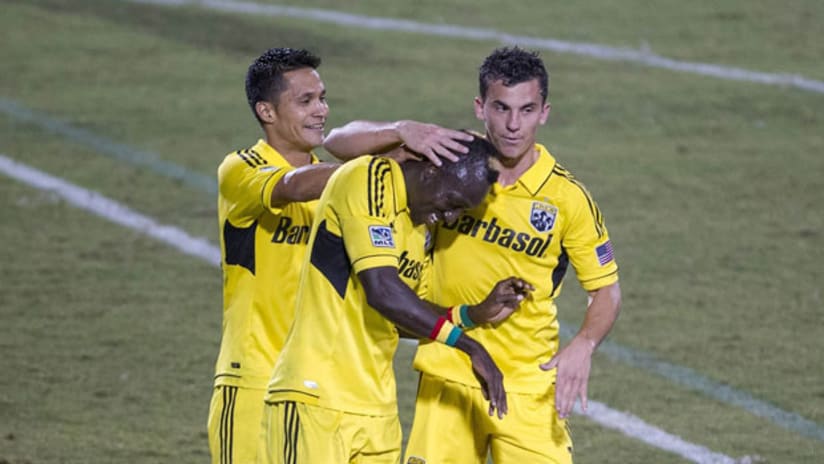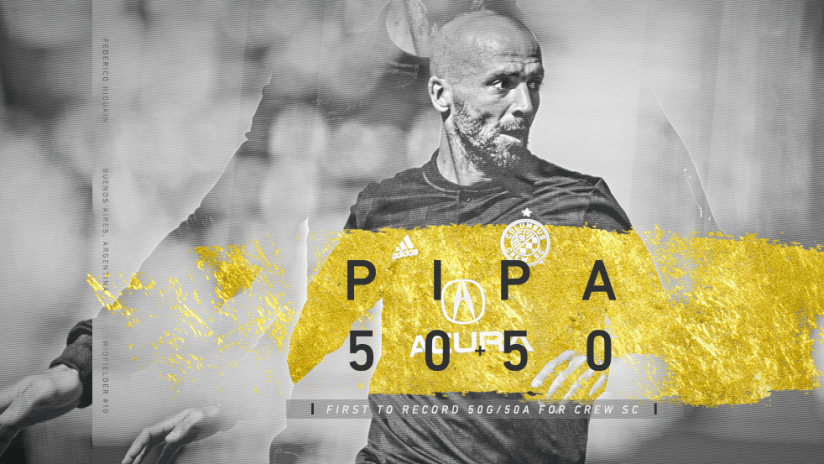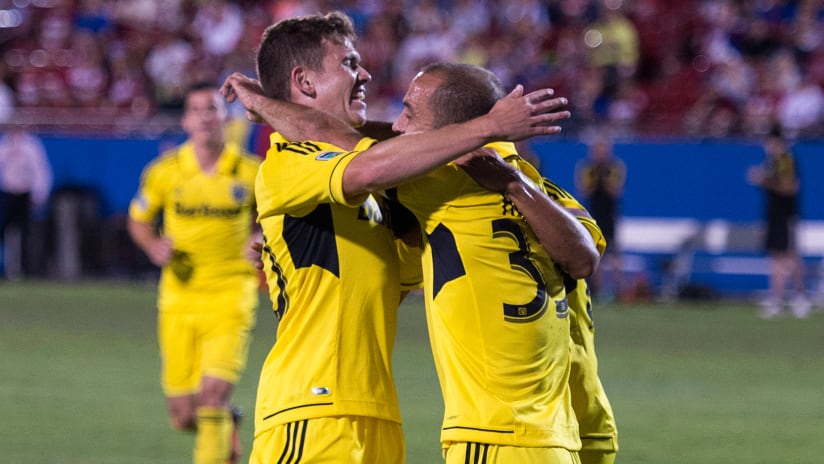His high school classmates called him “soldier,” and that's exactly what Dominic Oduro thought he would become while growing up on a military camp.
But as the Columbus Crew forward heads into the final game of the 2013 season against New England on Sunday, he's far from the soldier his father, Anthony, was during 20 years in the Ghanaian Army.
Unlike with his father's profession, Oduro has realized that certain points arise in the career of a professional soccer player when moving on is the best option, however painful it may be. Loyalty is practically nonexistent for a 28-year-old journeyman who has played for five teams in eight MLS seasons, just one move shy of the league record.
After being moved from team to team without much say in the matter, he forced a trade for the first time last offseason, asking the Chicago Fire to start him or ship him. And while he'd love to stay in Columbus next year, he knows that settling down simply isn't a reality in the path he's taken through life.
“You always have to know, at any point you can lose your job,” he says. “You can't get comfortable in this league. If you get comfortable, things will just flash before your eyes, so you have to expect the unexpected.”
He smiles as he talks about seeing his childhood friends when he returns home, all grown up in their military uniforms. He jokes with them that they could be calling him “Major Dominic” had his life gone a little differently.
But while his move away from military life was the first of many uncomfortable changes in his life, he's realized that each time, moving on has led him to a better place.
---
---
Oduro was 15 years old when he gathered his two suitcases and begrudgingly left with his father to take a three-and-a-half hour bus-ride from his childhood home, Burma Camp in Accra, to a boarding school in Kumasi.
Everyday life in the military encampment was both regimented and comfortable. He'd rise early, call his elders “Sir” and “Madam,” iron his dad's camouflage military uniform and shine his boots.
The gated community was an environment he and his two older sisters, Linda and Cynthia, were “privileged to be brought up in,” Linda says, and Oduro thought he might never leave.
“Who knows? If I hadn't gone to college, I would probably be in the military,” he says. “It's not like you go out of the neighborhood to explore other places. You go to school in the military camp, you play in the military camp, you have programs in the military camp.
“In the end, I guess it's like brainwashing: Everything is military for you, why not join the military?”
For years he made the mile-long walk to school alongside soldiers and children who would eventually become soldiers, zig-zagging his way through bushes off the side of the paved road to find the quickest route. Day after day, they made the trek to class, which took place across from a military office.
When the day was done, he walked home to do his chores. Then, finally, he headed out to play soccer.
But life as a soldier's son wasn't completely comfortable. His father's six-month deployments on various peace-keeping missions across Africa, including in civil war-torn Liberia, always brought fear that a military official would one day knock on the Oduro family's door to tell them that Anthony wasn’t coming home.
But each time, his father returned, relieving the family of their worry, allowing them to return to their normal routines.
The regulated life in the military camp brought stability, and leaving would mean putting his entire world behind him.
“That was a little hard,” he says. “You always go to school and come home. Then, it was like, okay, we're taking you away from home to go somewhere else.”
Oduro pleaded with his parents to let him stay, but he eventually relented, realizing that attending one of the top high schools in Ghana would be best for his future and an opportunity to go to college.
Change, as he later realized, can be a good thing. He left the gates of Burma Camp, thinking he'd return someday, when he might walk alongside kids as they walked to school, this time as a soldier.
---
Had it not been for his acceptance into University of Ghana a few years later, he probably would have followed in his father's footsteps. He applied for military enlistment when high school came to a close, but he and his parents agreed that pursuing his college degree would be his best option. The military, after all, would still be there after he graduated.
“I don't think, at that time, with the perspective that I had, that it was a bad idea to join the military,” he says. “My father did, and I was proud of him, so I didn't think there was anything wrong with following in his footsteps. It wasn't anything to shy away from.”
But then came a day in 2003 that assured Oduro would never go back to life on the base.
Oduro didn't want to get out of his dormitory bed when he heard an American coach was in town to scout the university soccer team. He was skeptical. He'd heard stories about players being scammed by foreigners claiming to be coaches or agents, always promising players careers abroad but failing to deliver.
Finally, one of his teammates roused him, and he made his way down to the field, where Virginia Commonwealth coach Tim O'Sullivan caught his first glimpse of the player who would lead his team to its best NCAA tournament finish ever.
After a matter of minutes, O'Sullivan knew he had a spot for Oduro on his team. For the first time, an American coach saw the raw speed that still makes MLS general managers drool to this day, but he also saw the unrefined finishing skills that have made Oduro such a puzzle for most of his career.
“We said, ‘The athleticism part, we're never going to find [in the US]. Let’s see if the other pieces come along,' ” says O’Sullivan, who offered Oduro a scholarship on the spot.
Over the next two years, O'Sullivan helped mold Oduro into one of the best forwards in college soccer. He scored 18 goals in two years and was named Colonial Athletic Association Player of the Year in 2004, when he was a third-team All-American selection and the Rams reached the NCAA quarterfinals.
The next year, he earned his bachelor's degree from VCU, becoming the first in his immediate family to finish college.
In January of 2006, Oduro flew to Philadelphia for the MLS SuperDraft. He wasn't sure if anyone would call his name. But they did. FC Dallas selected him with the 22nd overall pick. He celebrated over a hamburger that night with family friends, and they discussed the commitment a professional career would take. The young player who never thought he'd leave the military camp envisioned spending his entire career in Dallas.
“You think, 'Oh, these people love me, they want me here, so I'm going to be like the guy to grow,” he says. “It's a little bit naïve.”
---
---
Oduro earned mixed reviews during his three seasons in Dallas, when he settled into a role as a speedy sparkplug off the bench. After scoring nine goals in 70 games, he was shipped to New York for an uncomfortable and unsuccessful three-month stay before he was moved again, this time to Houston.
Weeks into his third season with the Dynamo, in 2011, Oduro heard his phone ring as he walked from his temporary home, a Houston hotel, to a restaurant for dinner. He hadn't even signed a lease on a new apartment after the ink dried on a new three-year contract with the Dynamo that more than doubled his previous salary.
He picked up his phone. It was Houston coach Dominic Kinnear. He had been traded again, this time to Chicago, in exchange for for Calen Carr, who wasn't even playing at the time because of a concussion.
Oduro had believed that a new contract meant he was in Houston for the long-term, that, like Dallas after the draft, the club really wanted him. He was wrong.
“That was really a shocker,” Oduro says. “It was mind-blowing. It took me off my feet. I didn't see that coming.”
The trade came just days after an opening-day, 1-0 loss to Philadelphia, when Oduro missed a wide-open shot inside the six-yard box, sending the ball flying over the goal. The gaffe may not have been the direct reason for the trade, but at a minimum, it was a pesky reminder of what teams found so frustrating about him.
Oduro says he wasn't given any closure or reason for the trade. Instead, Kinnear thanked him and sent him on his way, the same way he left Dallas and New York.
“They just trade you," Oduro says. "They don't give you any specific reasons why you were traded."
But the move to Chicago turned out not to be as bad as anticipated. In the Fire's up-tempo, counter-attacking system, Oduro fit perfectly. In his first season, he matched his career high with 12 goals, notching five goals before early July and another seven after the Fire acquired Argentine playmaker Sebastian Grazzini, whose pinpoint passing picked out Oduro's blazing runs again and again.
Still, Oduro knew more than to expect smooth sailing, even after his initial success. Eventually, the Fire lost Grazzini after a contract dispute and tried to replace his firepower with forward Sherjill McDonald. In 2012, despite his strong previous season, Oduro saw the club's faith in him fade away, and his numbers dropped to six goals in 21 starts.
After coming off the bench for the last 11 games of that season with the Fire, Oduro decided he'd had enough. For once, he was going to dictate his direction. He was going to find a way into a better situation. He approached the Chicago brass and initiated a discussion that eventuall led to a preseason trade to Columbus. For the 5th time in five years, he was headed to a new club in a new city.
“You might move from one city to another city, you just have to adapt,” he says. “We're always surviving, everybody is surviving every day.”
---
---
The decision to take matters into his own hands to some extent was like a sea-change. Oduro found himself in a place he truly wanted to be, and he fit in quickly on and off the field for the Crew.
The locker room matched his light-hearted personality, and although the side struggled to find the consistent form necessary to get into the playoffs, Oduro proved to be a constant source of action and positivity, and the numbers have backed it up. Heading into the final match of the year on Sunday, he has already set new career highs for goals (13), starts (33), and minutes played (2765). Plus, he has matched his career high in assists (4). He was named MLS Player of the Month for September, the first time he's ever received such an accolade.
Interim head coach Brian Bliss says Oduro has been a positive presence from the start. While natural questions arise when a player is traded several times, Bliss saw no evidence of a poisonous personality when he conducted his pre-trade research.
“From what we've seen here, he's been nothing but a good guy in the locker room,” Bliss says. “I can't see his being traded as being a trademark of his personality.”
The questions with Oduro have always centered around whether his speed and skills would be enough to overshadow the chances he misses. And throughout the last few years, the positives have begun to outweigh the negatives. Even one of the men to trade him in the past, Chicago President of Soccer Operations Javier Leon, has been impressed.
“Every year since he came to the Fire from Houston, his consistency has improved, he's gotten better,” Leon says. “I think this year, with Columbus, he's probably having the best year of his career, not only because of the goals, but the way he's playing, the confidence that he has.”
While his finishing and confidence in front of goal have improved, Oduro knows his speed is his major commodity. In certain systems with certain teammates -- such as the Crew's attacking system centered around playmaker Federico Higuain -- that commodity is more valuable than in others.
“I know what I can do, and I know I do it best, and that's been working for me,” he says. “I'm not trying to be a playmaker or anything. I'm just trying to be the guy who gets in behind the defense and tries to score goals.”
Someday, however, Columbus may lose Higuaín, or they may decide they don't need Oduro's specific skills anymore. When that happens, he may need to move on. And that's a reality he's used to.
When Swiss veteran Alain Rochat was traded from Vancouver to D.C. United in June, his first trade in his third year in MLS, the 30-year-old called the process of midseason trades “terrible,” and added that trades should be restricted to a “more human” process in the offseason.
Oduro couldn't hide his amusement.
“We were laughing about that with a couple of my teammates,” he said. “We were like, 'Welcome to MLS. What do you think? You think somebody is going to give you a week's notice that this is going to happen?’”
Oduro can't buy a house. Throughout his career, he has hardly had time to build lasting relationships with people beyond the soccer world before he was on the move again. He can't even take an apartment without thinking of the probability that he'll have to move out before the lease is up.
---
---
Another move could even happen this offseason. Oduro has settled into Columbus -- the quietest town of the five MLS cities he's lived in, he says -- but he isn't necessarily viewing it as the place he'll finish his career. Predicting where he'll land in the long run is futile, he says.
Plus, he's a free agent at the end of this season. And in the wake of longtime coach Robert Warzycha's departure, the Crew appear headed for an offseason of changes.
Oduro, for his part, will investigate heading overseas, just as he did after the 2010 season, when he unsuccessfully trialed with Israeli club Maccabi Haifa during his last free agent stint.
But the thought has crossed his mind that he could stay in Columbus for the long haul, and Bliss says he'd love to keep him if the contract number is right. Oduro even floated the idea of buying a house at a later date, far in the future.
“Maybe if I stay here... someday,” he says.
A callus has built up inside of him, shielding him from the blow dealt when coaches and executives tell him his services are no longer needed on their team. He was unhappy with how his situation ended in Chicago, but he wasn't shocked or shaken when he left. He knew it was time to move on.
So if another move happens, he'll take it as a step forward. Life as a soccer mercenary, after all, has taught him that moving on isn't always such a bad thing.
“Sometimes, as much as we don't want to admit it, sometimes we need to make some changes,” he says. “I want to play as long as I can anywhere that's possible. I can't just say I want to play in the United States. That and everywhere my career takes me. It's a long journey ... I could start and finish my career [in the US]. I could not. That's not up to me. It's out there. It's destiny. Wherever it takes me, I'll go.”





